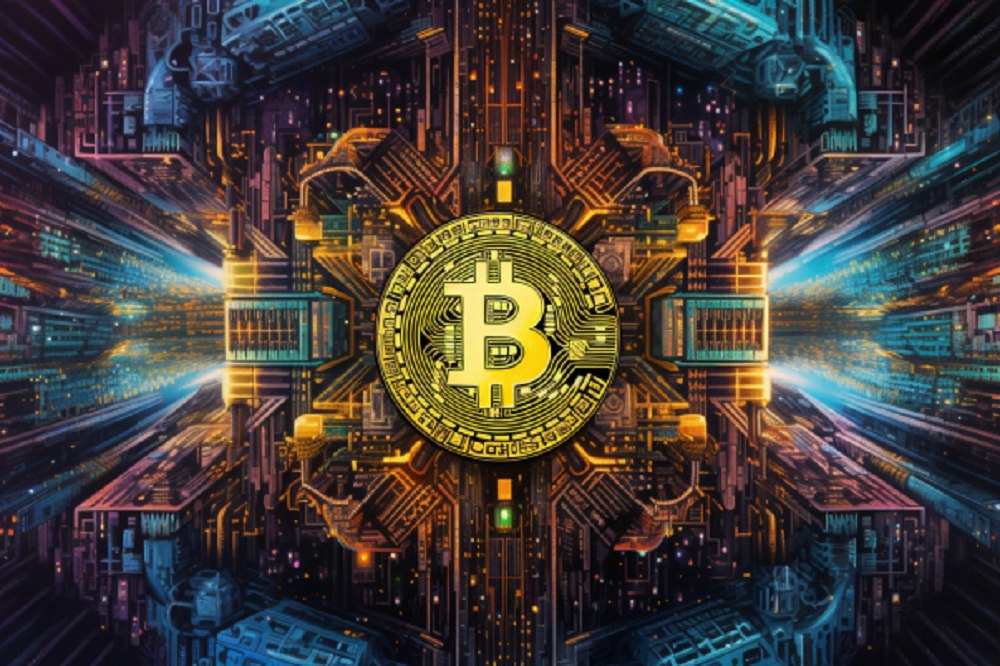What Is Turing Completeness In Blockchain, And What Are Its Applications?

Table of Contents
Turing Completeness In Blockchain Technology
Alan Turing’s 1936 groundbreaking idea of a Turing machine is a cornerstone of computing since it exemplifies algorithm handling universality. A computer system is considered Turing complete if it can simulate any algorithmic process, a concept originating in Turing’s seminal work.
In a Turing complete system, all the necessary functions for computing universally converge. The system efficiently handles lists, words, or integers regardless of the data type. It controls iterative processes and incorporates reasoning for making decisions using “if-else” expressions through loops.
The machine is very good at retrieving and storing data from memory, which opens up a world of computational possibilities for expressing almost any algorithmic calculation. The capacity to manage several applications and smart contracts is of utmost importance in blockchain technology.
With this fullness, smart contracts can use complicated logic and execute various computational operations inside blockchain platforms. This quality is crucial for Ethereum, a prime example of a Turing complete system.
Developers create complex decentralized applications (DApps) and smart contracts using its programming language, Solidity. The distinguished Turing Award was bestowed upon Silvio Micali, a star in the field of computer science, in 2012 in recognition of his immense achievements.
The groundbreaking Algorand blockchain he created by applying Turing completeness principles is evidence of his innovative spirit. However, implementing Turing completeness requires careful programming, thorough testing, and increased security measures to utilize its potential fully.
Implications Of Turing Completeness On Smart Contracts
Turing completeness significantly impacts blockchain-based smart contracts. It means a system can do any calculation, like a Turing computer. This characteristic gives smart contracts a lot of flexibility and complexity.
Turing-complete systems enable smart contracts to run complex algorithms and access many decentralized apps (DApps). Nevertheless, it is crucial to pay close attention during development and audits to guarantee the security and reliability of smart contract execution.
Programming with caution is essential due to the potential for infinite loops or unexpected outcomes. Yet, this innovation empowers developers to test out various uses and promote the expansion of decentralized ecosystems.
EVM In Ethereum’s Turing Completeness
The engine that drives smart contract execution on Ethereum is the Ethereum Virtual Machine (EVM). It satisfies the Turing test, allowing programmers to utilize Ethereum’s programming language, Solidity, to build and run decentralized apps (DApps).
Solidity is unique because it can manage any computer operation, substantially increasing Ethereum’s adaptability. The decentralized processing of the EVM allows the blockchain to manage complicated activities and business regulations, which gives the system flexibility.
The EVM’s gas mechanism is its defining feature. It works similarly to Ethereum’s control mechanism, charging users for the resources they utilize. Every activity uses gas to maintain a stable network and stop resource misuse.
In addition, the EVM is compatible with other smart contracts, facilitating their communication. The EVM completes Ethereum Turing, enabling varied DApps and strengthening Ethereum’s position in the blockchain ecosystem.
Status Of Bitcoin Blockchain Turing Completeness
Instead of focusing on being a platform for complicated programming, Bitcoin is more concerned with being a decentralized digital money than Ethereum. Thus, improving security and warding off vulnerabilities are the goals of this design option.
Turing completeness makes tricky, undecidable calculations and exploitable endless loops possible. You may rest assured that scripts will execute predictably and stop within a predefined time limit.
All nodes in the Bitcoin network must reach a unanimous agreement on the current state of the blockchain for the network to function. Consensus among nodes could be more difficult if Turing completeness included non-deterministic behavior.
While Bitcoin offers limited programmability, other blockchain systems, including Tezos, Cardano, NEO, and BNB Smart Chain, use Turing-complete languages for smart contracts. These languages include Michelson, Plutus, several NEO languages, and Solidity for BNB Smart Chain. Furthermore, a Turing-complete language enables blockchain networks to facilitate complex tasks.
The Limitations Of Blockchain Turing Completeness
While programming language flexibility has many advantages, it poses some dangers, such as the possibility of coding mistakes, security holes, and unforeseen interactions between smart contracts. As seen in the 2016 Ethereum DAO breach, these problems could have far-reaching effects.
Furthermore, transaction efficiency and speed could be negatively affected if the system is overloaded with complex computations across network nodes. Infinite loops or operations that use many resources could compromise the network’s stability and dependability.
Due to their ability to accommodate any computable function, Turing-complete blockchains make formal verification more difficult. Thus, it becomes computationally challenging to ensure program accuracy. Complex audits and state-of-the-art tools are required to secure smart contracts on a Turing-complete blockchain.
Time Crypto Market offers content visibility for dozens of crypto enterprises, and you can be a part of our network! Reach out to us on our telegram chat for inquiries. The nature of cryptocurrencies is highly unpredictable; always perform your due diligence before any investment. Several articles on our site come from guest contributors or are commissioned pieces, not originating from Time Crypto Market's in-house writers. The perspectives shared in these articles might not necessarily align with those of Time Crypto Market. We do not assume responsibility for the veracity, caliber, promotions, offerings, or any other elements presented on our platform. Consult our comprehensive terms of service and disclaimer for more details.








